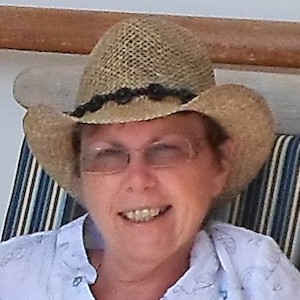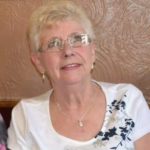I was diagnosed with McArdle Disease in 1976, when I was 20. I always knew that I was different from everyone else, and was often accused of being “lazy” – although I knew this wasn’t the case. I struggled with any physical activity – always running out of ‘puff’ before any of my peers. I was never a favourite with the PE Teachers!
Causing the family to miss the bus
I used many strategies to compensate for my struggles. For example, when quite young, I was terrified of being the cause for missing a bus when going out with my family. They would think nothing of walking to the top of the road and running to catch a bus already at the stop, but as the walk up the road had resulted in fatigue and my “second wind” had not yet kicked in… I was unable to run and so was often the cause of long waits until the next bus came along. I learnt to make some excuse to leave the house long before anyone else and meet them at the bus stop. I always knew I had limitations but didn’t know why.
A biopsy and at last a diagnosis
It was in my teens when the muscle spasms started. I suffered many years from these excruciating spasms, before my then boyfriend, now husband, encouraged me to get them investigated. The doctor seemed to get frustrated with me, but he said vague bells where ringing in his head during my first appointment and he referred me to Walton Neuro for a muscle biopsy. This confirmed McArdle disease, but I don’t think this is a necessary procedure these days.
Adjustments at work
It was a relief to put a name to my weird symptoms and find out exactly why my body behaves in a different way to everyone else. I continued to work, though my employers had to make allowances for me. I was no longer expected to use the stairs, carry heavy items, etc. I was able for the first time in my life to live within my limitations, free from worry and guilt. I got married and had two wonderful sons – both by Caesarean section.
Learning about McArdle’s
I was SO thrilled to find the AGSD-UK web site and realise there are other McArdle-ites out there. The 101 Tips book, Handbook and kind support from Andrew Wakelin has boosted my knowledge. The ‘Six Second Rule’ is a mantra quoted to me by all of my family. It affects them dreadfully if for any reason I over do things and end up in agony and unable to move. When this happens, I become reliant on them – so I try very hard to minimise this risk.
Everyday is a good day when I have managed my condition properly, but even the best of us still get caught out. However, my life is full and happy.
Our symptoms are at best distressing and at worst debilitating in the extreme. For anybody who shares those symptoms, I hope after reading any of the stories from this small rare group of McArdle-ites that they will find encouragement to seek help.


































